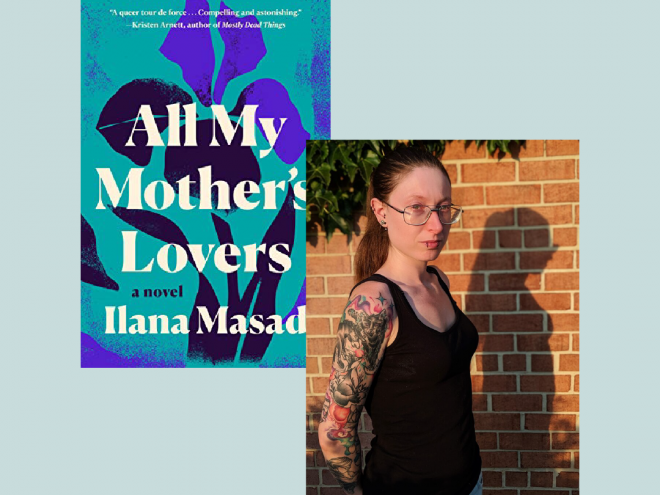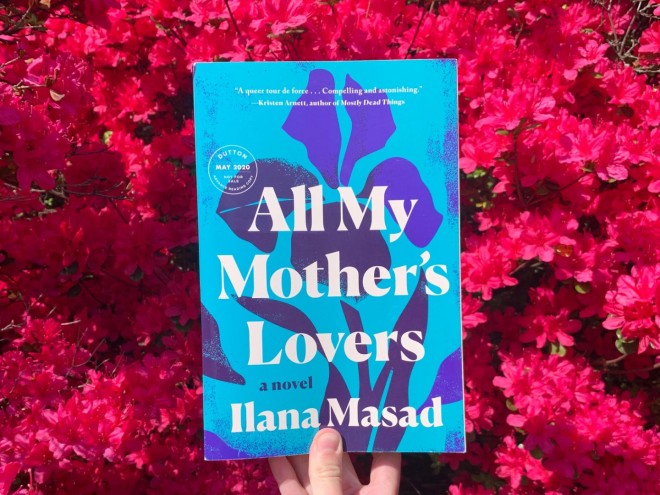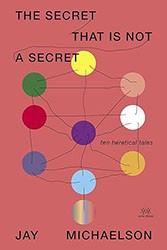Ilana Masad’s debut novel begins with a phone call: Maggie Krause’s brother calling to tell her that their mother, Iris, has died unexpectedly at the age of sixty-two. Maggie, at twenty-seven, has just begun to settle into a relationship with a new girlfriend, has a steady job, and has been feeling close to the end of her youthful uncertainties. Her budding self-confidence is shaken by her mother’s death, particularly by the five letters her mother left behind, addressed to men whose names Maggie has never heard. Determined to understand the mother who never fully accepted her sexuality, Maggie sets off to deliver the letters in person and discovers dimensions to her mother’s life that she never imagined.
Masad skillfully balances bitterness and tenderness throughout the narrative, alternating chapters from Maggie’s point of view with flashbacks from Iris’s, which illustrate that, as Maggie’s girlfriend Lucia tells her, “everyone has reasons for everything they do,” and miscommunication between parents and children may stem as often from similarity as it does from difference. The relationship between Maggie and Iris is marked by a pain familiar to many queer readers, the injury caused by a parent whose fear that the world will be unkind to their child is, in itself, an unkindness. The love does not fully excuse the lack of acceptance, and the premature loss of the parent stamps out the hope that communication will, somehow, grow easier.
Yet, through her journey to carry out Iris’s last wish, Maggie discovers also that there were parts of her mother’s life which, if not expressed through the well-defined and openly communicated labels with which millennials are more comfortable than our parents, nevertheless are more familiar than they are alien. Just as there were parts of Maggie that her mother never seemed to understand, there are parts of her mother that Maggie never understood — and parts that she understands better than she thought she ever would.
In some ways, every generation needs to reinvent the wheel in order to feel independent and capable. But, whether communicating with our queer elders or with elders we would never consider part of the queer community, it is important to understand that the things we hold most important are human, and though the words we use to describe experiences may change, there is nevertheless continuity of human experience from one generation to the next. All My Mother’s Lovers is a beautiful celebration of this continuity, and the value of communication across generations.
Sacha Lamb (@sachalamb.author on Instagram) explores gender, sexuality, and disability through historical fiction centering Jewish mythology and folklore. Their debut, When the Angels Left the Old Country, is a Printz Honor book and Stonewall and Sydney Taylor award winner. Their second novel, The Forbidden Book, is a Sydney Taylor Honor book and a Boston Globe Best of the Year pick for 2024. A 2018 Lambda Literary fellow, Sacha has a degree in Library and Information Science from Simmons University. They live in New England with a miniature dachshund mix named Anzu Bean.





